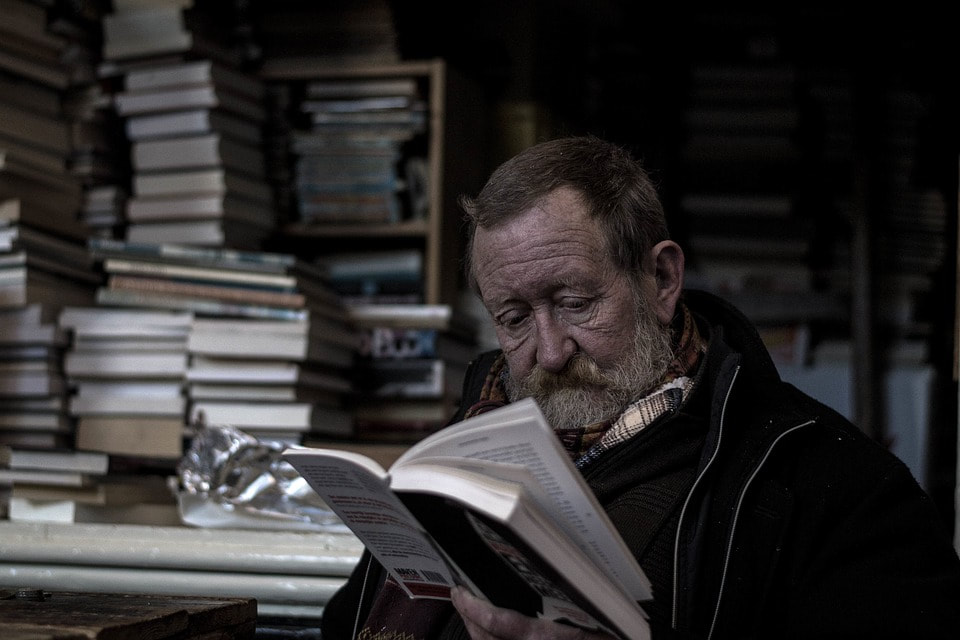I celebrated my 66th birthday recently. For some reason, this one seemed like a bigger deal than others; even bigger than turning 60. I suspect it’s because 66 is the age I’m officially eligible to receive full Social Security benefits – which seems like something an old man would be doing. I don’t feel all that old – certainly not old enough to be collecting Social Security. But like it or not, here I am.
Given this milestone, I’ve been in a reflective mood and decided to write down some of the things I’ve learned that are important to me. As I began this exercise, I found that the “learnings” fall roughly into two categories: personal and spiritual. I’ll write about the personal items today and pick up on the spiritual ones in the next post. So, here we go. Live Life with Honesty and Courage – My wife Jennie is an RN who specializes in working with older adults. She has seen quite the range of elders and the issues they face. Jennie’s conclusion is that “getting old isn’t for sissies.” It’s never a good idea to kid yourself, but it presents particular difficulties for those who are aging. Now is a good time to practice being honest about what I can and can’t do; about what accommodations to aging I need to make. I don’t want to be that guy who causes the family to have a secret meeting about when to take away the car keys. I’d like to believe I can see when that time is here and have the courage to do the right thing. People Irritations Begin in My Own Heart – Leaving dirty dishes in the sink for someone else to clean up: Urrrg. Getting cut off in traffic or having someone speed up on a closing lane so they can jump ahead – isn’t that why God gave us FIVE fingers? Someone lies to you or you’re confronted with an unscrupulous salesperson – don’t they deserve to hear it from you? These and hundreds of other irritants can turn a hopeful day into a funk if we let it. And that’s the key: if we let it. I’ve found that the actions of others are neither positive or negative, until I assign a value to them. Stephen Covey tells us that “ I am not a product of my circumstances, I am a product of my decisions.” Or, said another way – also by Covey: “between stimulus and response is the ability to choose.” Consciously or unconsciously, we choose how we respond to all situations. But often – we refuse to take responsibility for our choices because it is easier to believe that our reactions are somehow not within our control. Taking responsibility for our reactions also refers back to being honest with ourselves and having the courage to change what we see. When I find myself confronted with these “irritating” situations and if I’m in the right frame of mind – I try to ask why am I allowing myself to be so upset? What is it in me that is bringing forth such anger over such small actions by others? Now, I fully recognize that there are times when people do things that genuinely affect the mental or physical health and well being of others. And that is when we need to have crucial conversations. Tough Conversations Must Be Grounded in Love - I’ve always been pretty good at what I call “table combat”; that verbal back and forth between people who are trying to win an argument or make a point. I’ve found that in these situations, my default is to believe that I’m being attacked and I have to win the battle; that I can’t let my “opponent” get the best of me. If I can catch myself before getting too deep into these confrontations – I’ve found another way to handle these conversations: that’s to step back and try to find that image of God within the other person. Once, my friend George was chairing a large and contentious meeting. People marveled at how calm and composed George was through the process; how patient he was with folks whom many wanted to just shut down so the meeting could proceed. Someone noticed that at the beginning of the meeting, George pulled an index card out of his jacket pocket and put it on the podium where he could refer to it. When asked what was on the card, George responded that the card said “I love everyone here.” I believe that is the key: focus on how to show your love for the other person and the fight instinct begins to fade away. Recently I wrote about a “triple love” decision-making process where we are reminded to seek a win-win-win solution by finding a way to: · See how our actions bring us closer to God · Treat others as our neighbors · Respect ourselves in the process. Sit in Stillness and Listen for God – I’ve found that all of the above is immensely easier when I follow a daily routine to sit in stillness and listen for the leadings of God. My next post will talk more about this and about my spiritual learnings over these past six decades of life.
0 Comments
Your comment will be posted after it is approved.
Leave a Reply. |
AuthorMike Soika has been a community activist for more than 30 years working on issues of social and economic justice. His work for justice is anchored by his spiritual formation first as a Catholic and now as a Quaker. Pre 2018 Archives
|


 RSS Feed
RSS Feed
